Submitted by WA Contents
Shma Company Limited built residence that features bulging mini forest from its facade in Thailand
Thailand Architecture News - Nov 29, 2019 - 17:18 14234 views
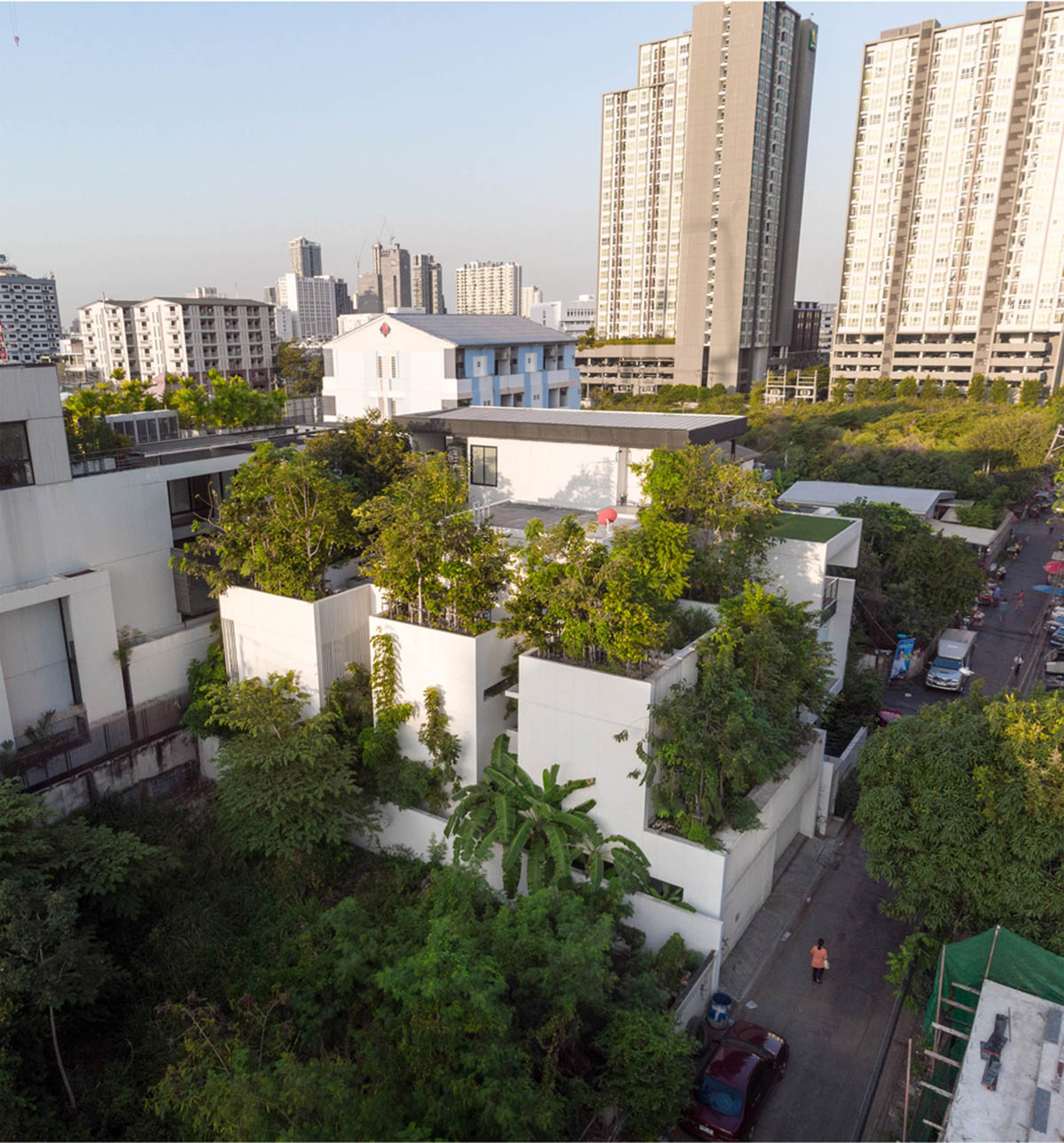
Bangkok-based architecture practice Shma Company Limited has responded rapid urbanization and high density with this forested house that features bulging plants and trees from its facades and terraces in Bangkok, Thailand.
Named Forested House, this house is unusual and it only reveals itself with dozens of pop-up green infills. As the studio says, they wanted to create more "green rooms" for trees that contribute to environmental pollution and people's health.

Image © Jinnawat Borihankijanan
"Rapid urbanization results in high urban density. Green areas are sacrificed to meet the demand for residential area. The lost green space significantly impacts on environment in many ways, importantly, air pollution," said the architects.
"This year PM 2.5 concentration level in Bangkok has risen up significantly high that it has visible effects people’s health. Research says trees have ability to trap particulate matter and produce oxygen, hence a way to tackle the problem. It is time for us to rethink of how to reintegrate green spaces back into the city. Bring back the healthy city, bring back healthy lives."
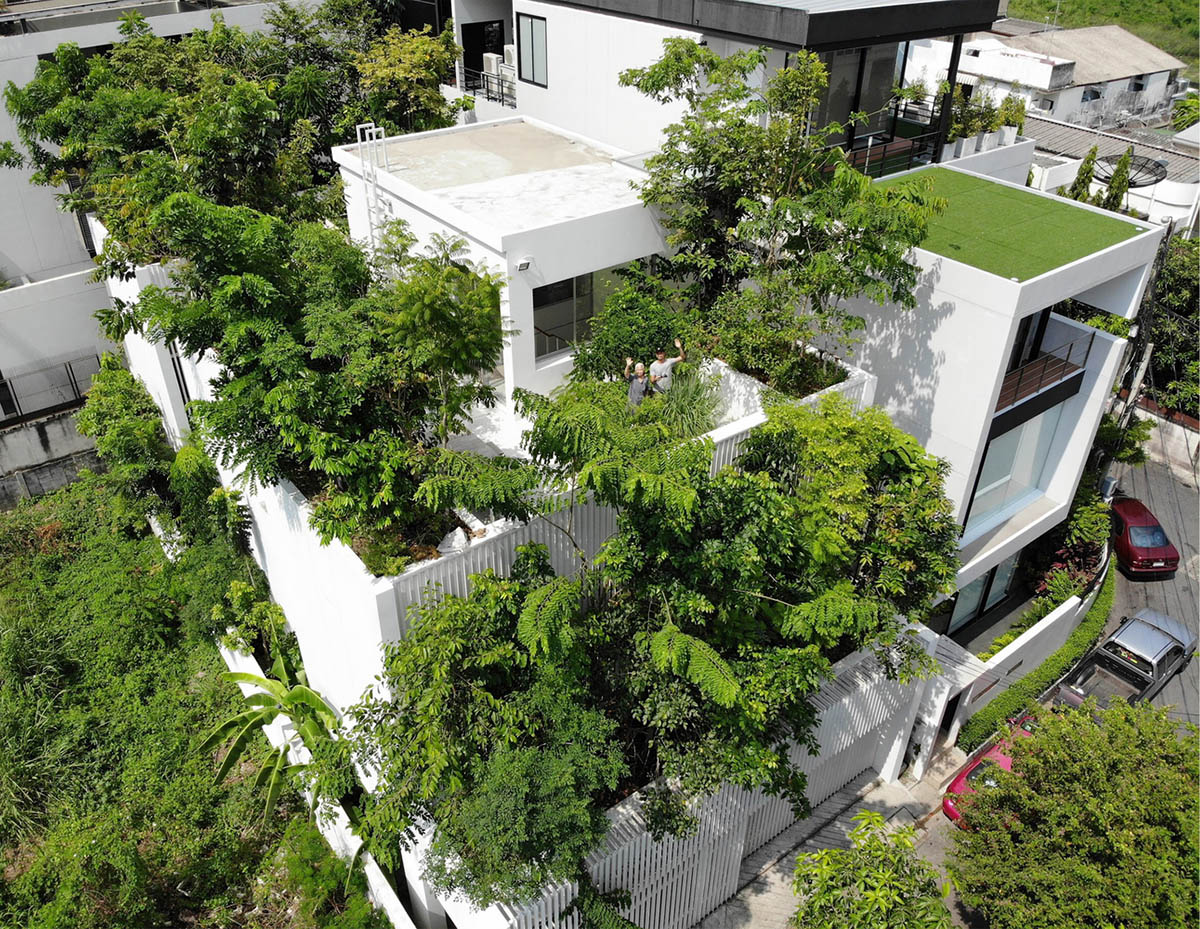
Image © Napon Jaturapuchapornpong
Shma Company Limited's project is a research aiming to find a sustainable and low maintenance way to bring back greenery into a private house, while still maximizing plot area. With thoughtful and effective design, the lush green roof of the Forest House has been thrived beautifully, reintegrating trees into the city again.
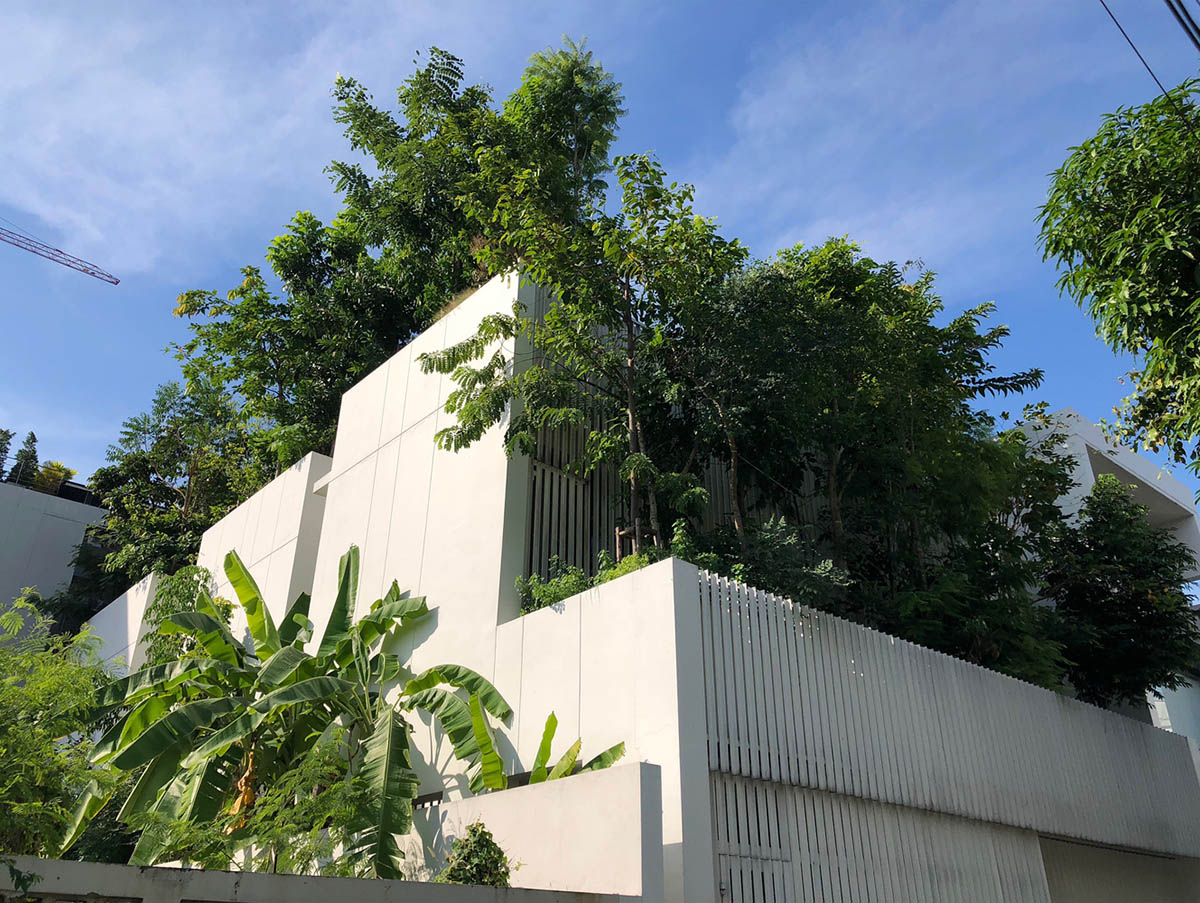
Image © Prapan Napawongdee
Forest House project reflects the trend of urbanization. A new bigger home is built to replace the previous smaller one in the same plot area to cater for an extended family. To integrate greenery as much as possible into the site area, the roof surfaces are utilized as planting spaces.
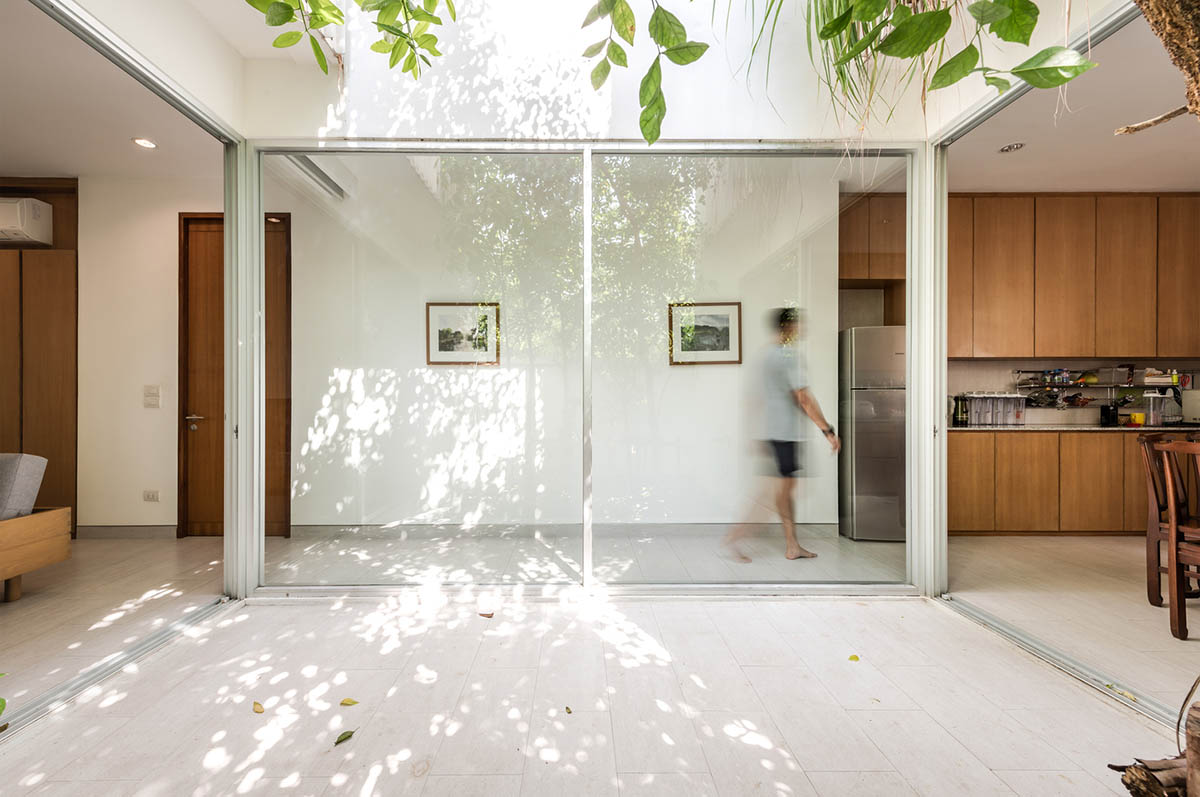
Image © Jinnawat Borihankijanan
With a careful design, the limited site area can accommodate more than 100 trees. According to researches, a tree can produce enough oxygen for 2 people, trees in the project then provides enough oxygen for 200 people. The amount of oxygen produced even exceeds the need of the 7-people family, and generously spreading to the surrounding neighborhood.
The following strategies are considered in the design process to ensure ideal planting location and method tree growth, with the least maintenance requirement.
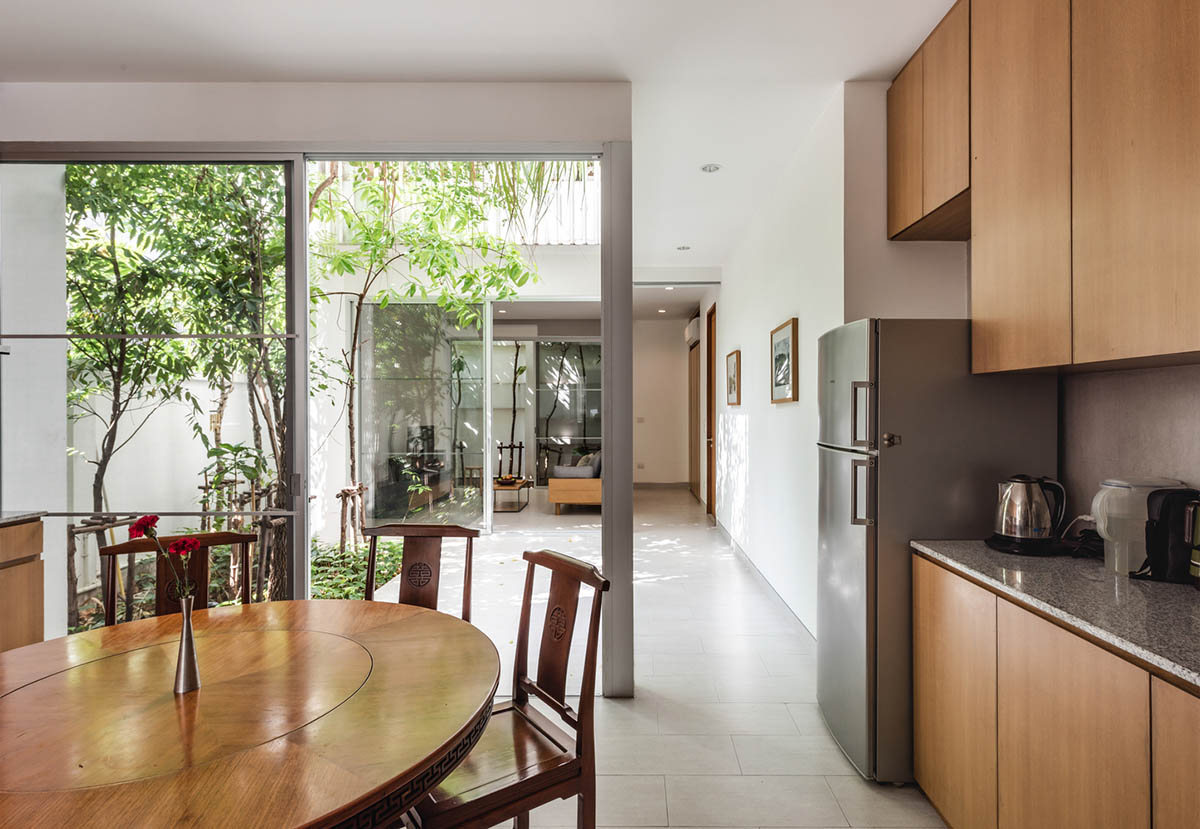
Image © Jinnawat Borihankijanan
Make Room for Trees
To make the most of the rectangular plot of 12×24 metres, the layout of the house is segmented into 3 sections with 2 courtyards in between. In addition to enhancing good wind flow to every room in the house, the layout also provides courtyard spaces for planting.
On the 2nd floor, a planter is integrated at the front of the house to provide privacy for the bedroom that faces the local street. Another planter is added in the courtyard to connect green space to the bedroom.
On the 3rd floor, where the roof is, the planter of 1 meter high, double up as railing, occupied around half of the total area, leaving flat surface for other functional use such as dining table, urban farm, and cloth drying area. Overall, trees grow on every floor from ground up to the roof.

Image © Jinnawat Borihankijanan
Forest in Boxes
Average planter size is 1-1.5 meters deep and 2×4 square metre. Only 1-2 years old trees with trunk diameter of 1 inch are selected because young root system has higher chance to adapt to the limited soil condition. The whole planter box is filled with high nutrient topsoil that provides food for the tree.
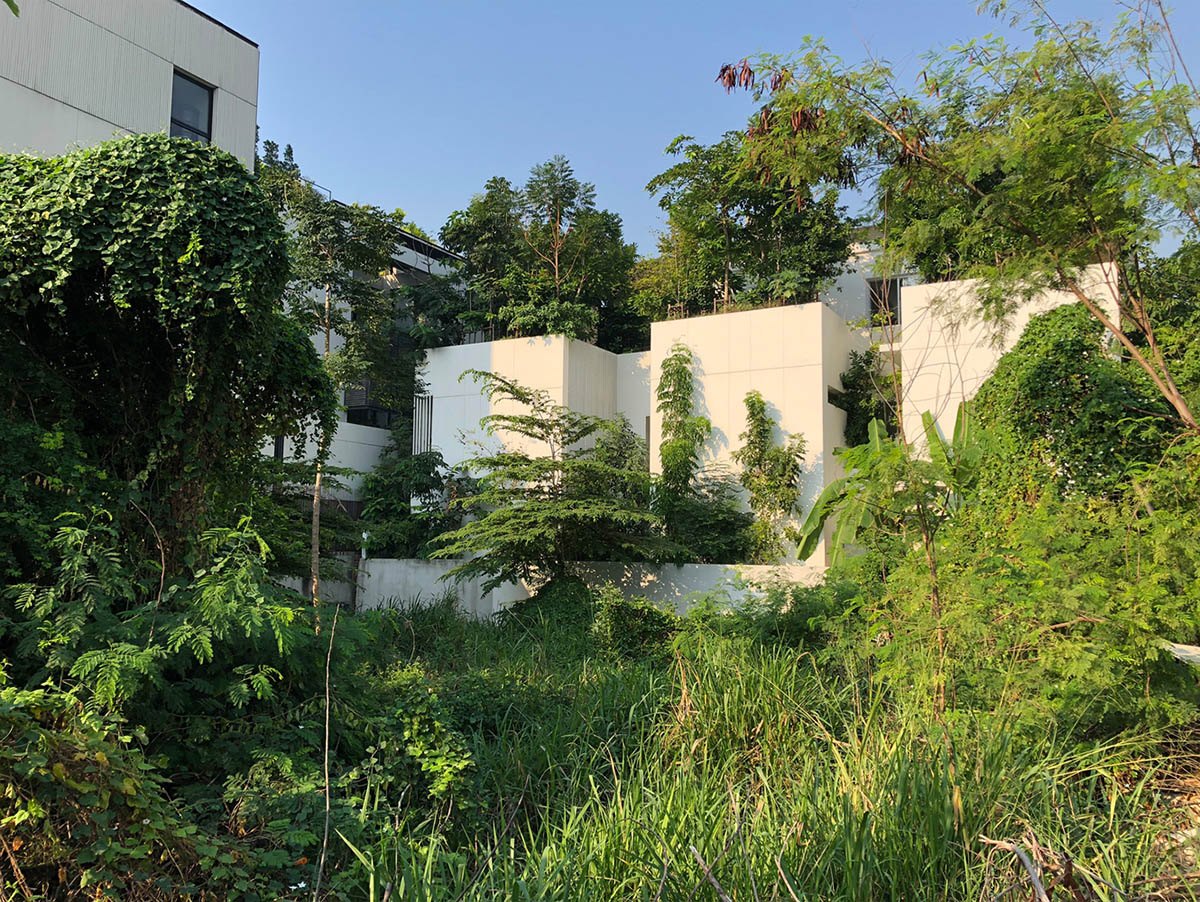
Image © Prapan Napawongdee
To maximize number of trees planted in the small planter, only columnar shaped trees are selected.Indigenous tree species typically found in mixed deciduous forest are chosen as they demand less watering, hence save the resource.
More than 20 species of evergreen, flowering, fruit barring, and edible trees creates rich biodiversity for the urban area. The design process allows trees to thrive through years rather than creating an instant thick forest which might not last long. Within 10 months after the completion, trees are grown up twice the height of the original size.

Image © Jinnawat Borihankijanan
Urban Farm
Roof surface is an ideal space for urban farm as it exposes to plenty of sunshine required for herbs and vegetables. Another important function of the forest roof therefore is to produce fresh organic food for the family. Thai fruit trees such as Star Apple, Rose Apple, and Star Gooseberry are randomly mixed with other forest trees to avoid attack from insects. Variety of Thai traditional herbs are planted in series of 400 mm. deep planters.
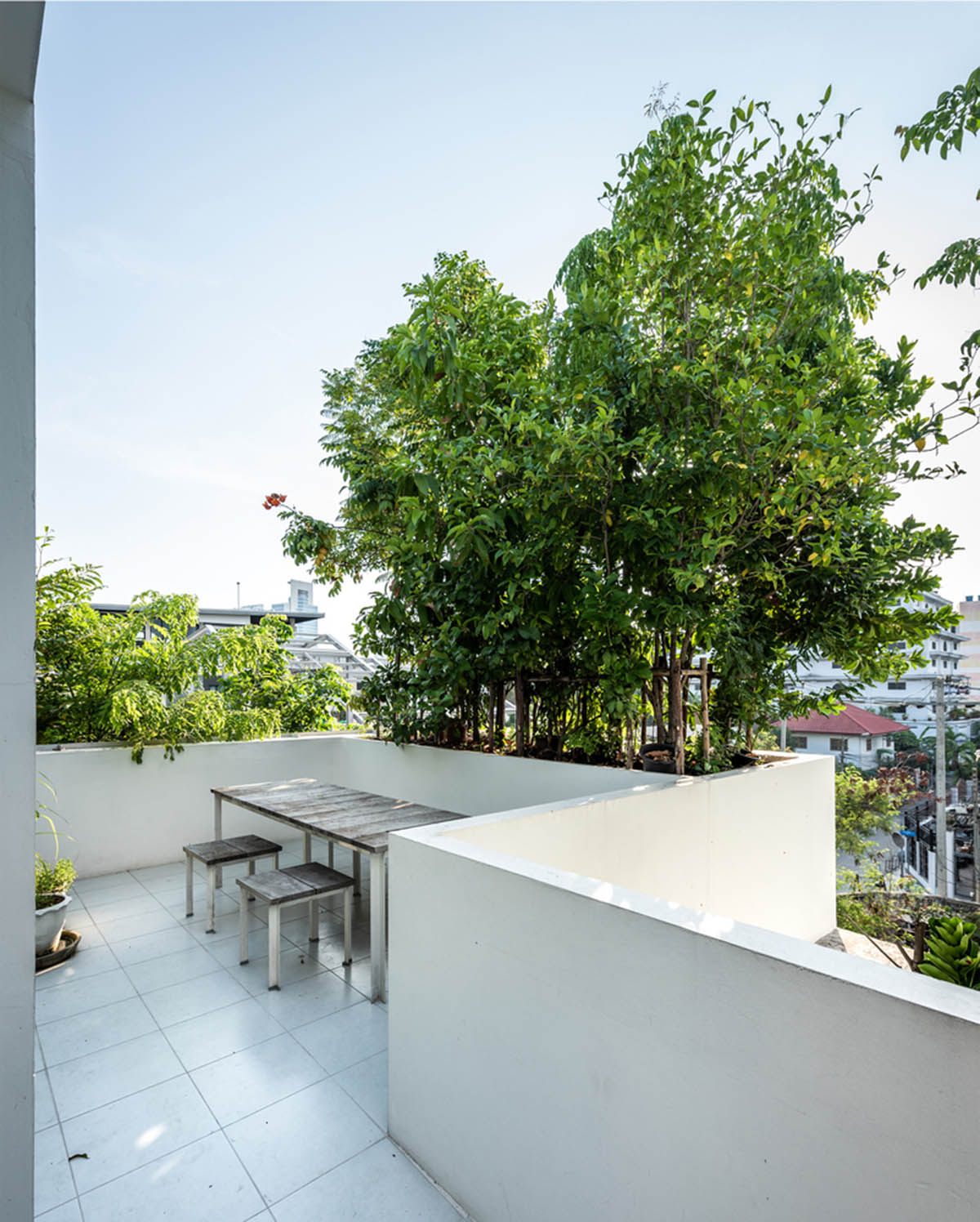
Image © Jinnawat Borihankijanan
Sustainable Forest
As a private house, simple maintenance is planned to ensure the forest’s growth in long run with no need of excessive resources. However, following topics are concerned in order to execute the sustainable forest.
Water Irrigation
Slow released drip irrigation at tree roots saves the water used for plant watering. Perforated tubes running through the top soil layer releases minimum water throughout the day and maintains sufficient humidity at the root of each tree. The system causes less excess water than sprinkler system.
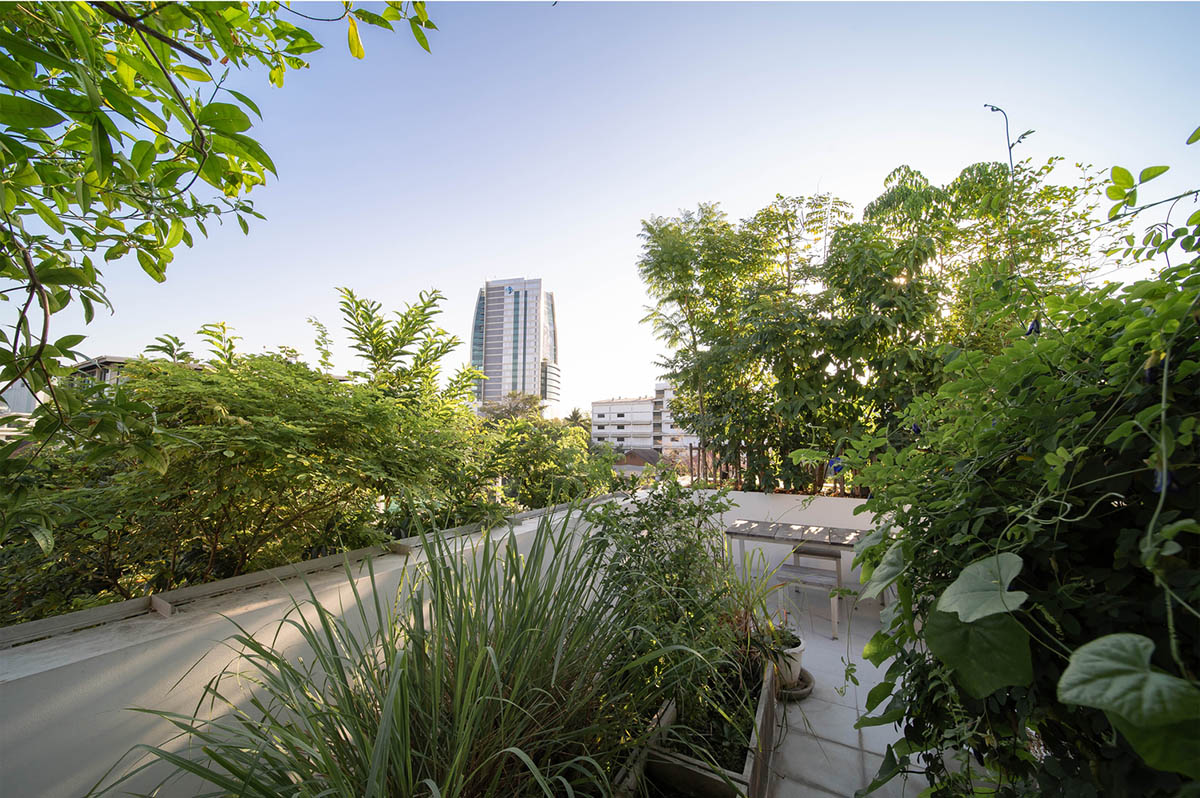
Image © Napon Jaturapuchapornpong
Natural Composting Process
Underneath the trees, no shrub or ground cover is planted leaving bare soil to be covered by fallen leaves. Dry leaves are not thrown away, but collected to fill the forest floor. Through time, natural degradation process caused by micro-organism turns the leaves into natural nutrient-rich fertilizer. Each tree species consumes and produces different kind of nutrient; therefore, variety of trees are selected to balance the nutrient distribution.
As each tree grows at different speed, branches of the faster growing ones can intervene growth rate of the slower growing ones. Therefore, pruning is required quarterly to provide enough space for the slower trees to fully grow.
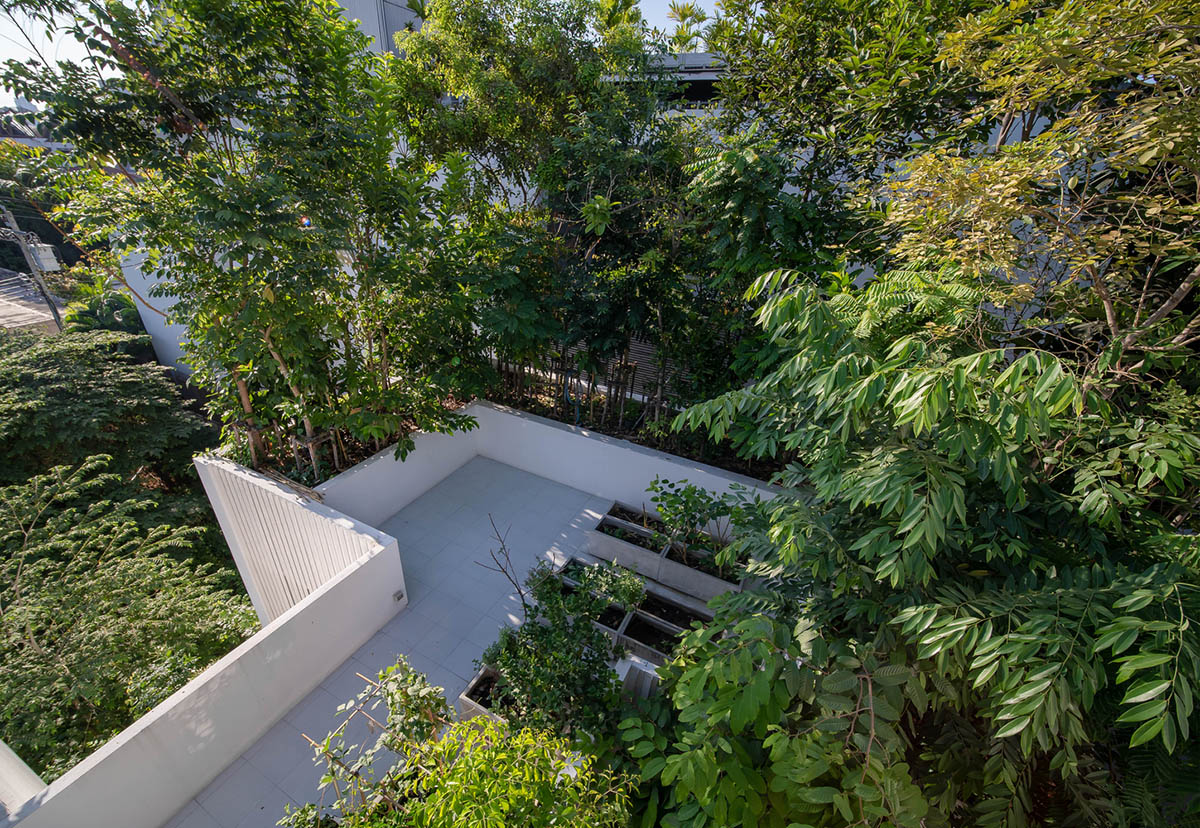
Image © Napon Jaturapuchapornpong

Image © Jinnawat Borihankijanan
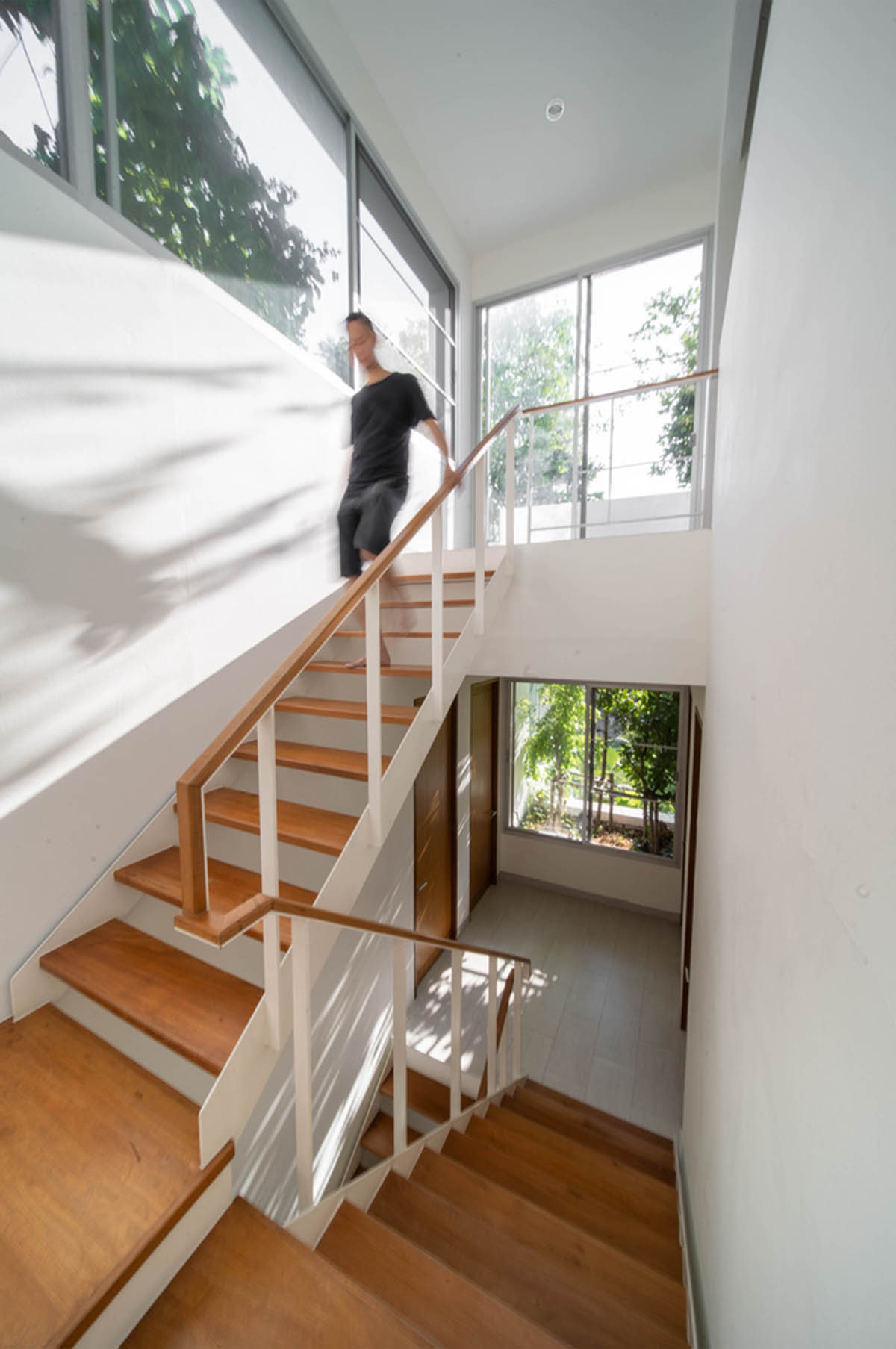
Image © Napon Jaturapuchapornpong
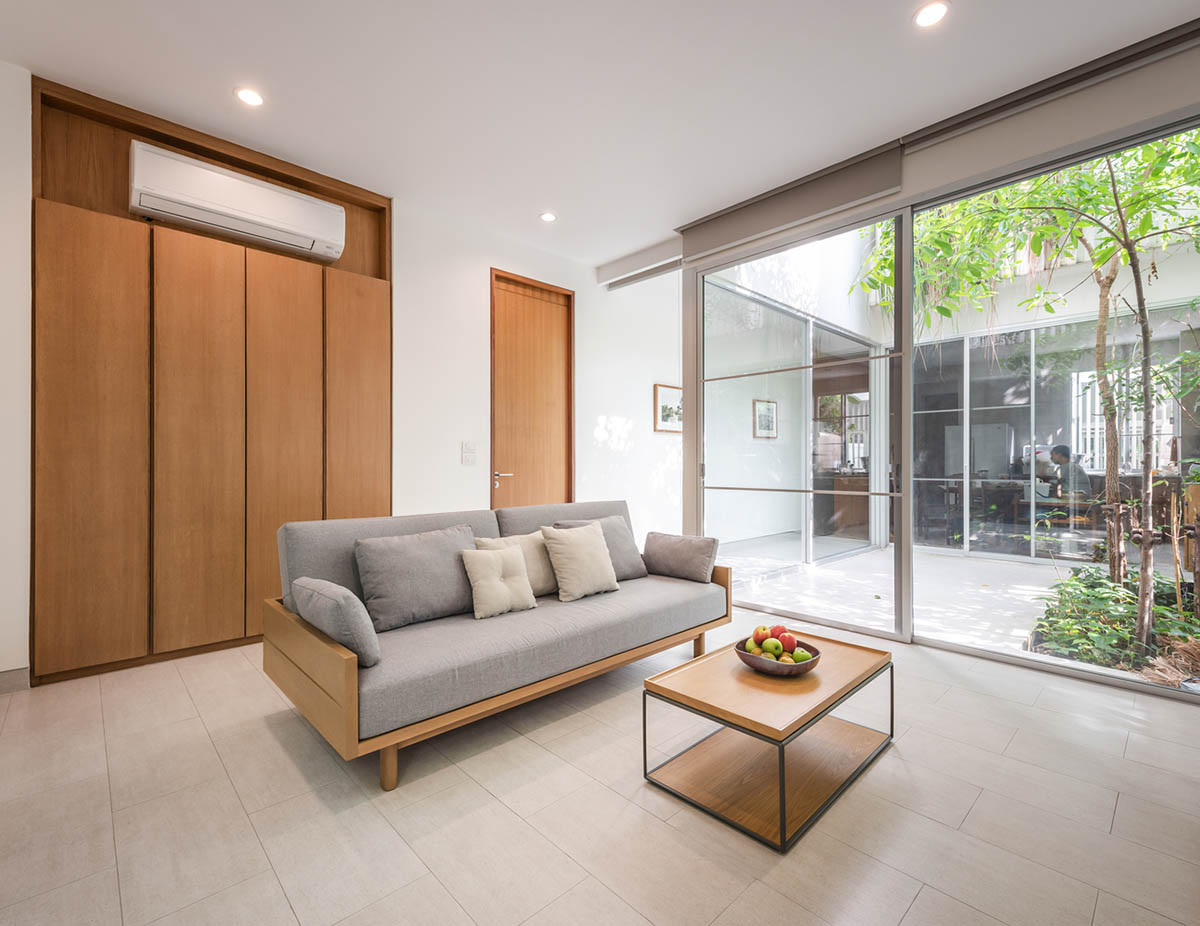
Image © Jinnawat Borihankijanan
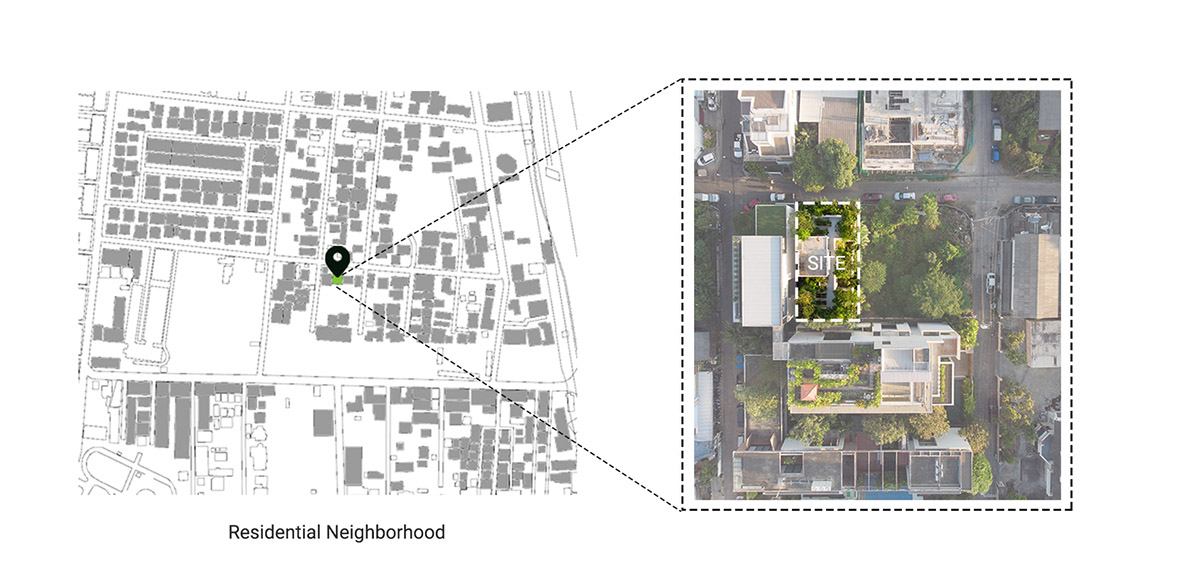
Site plan
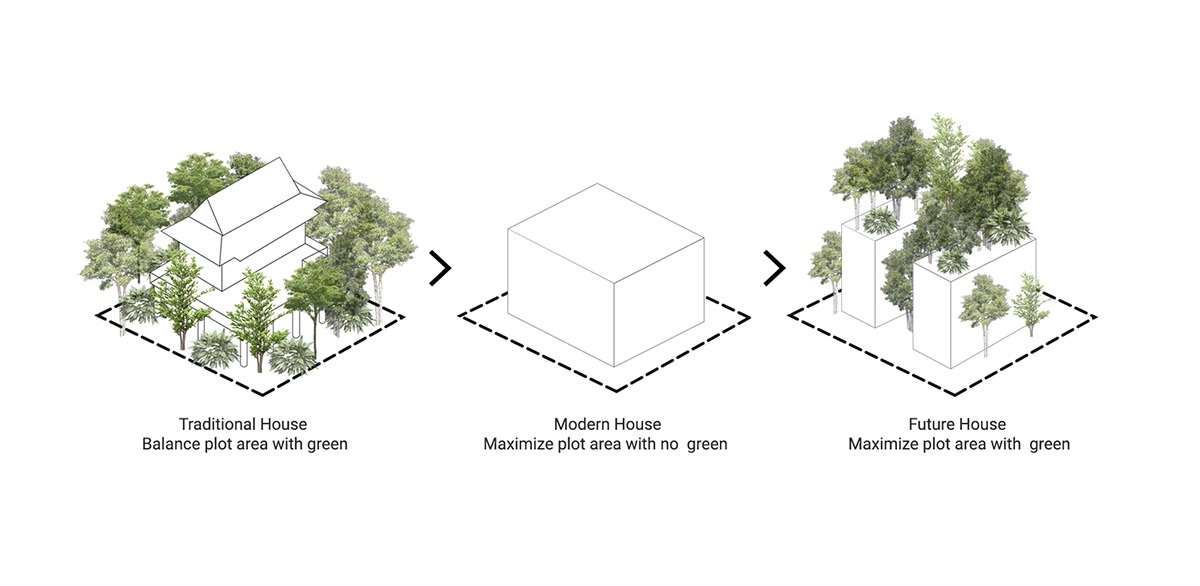
Diagram
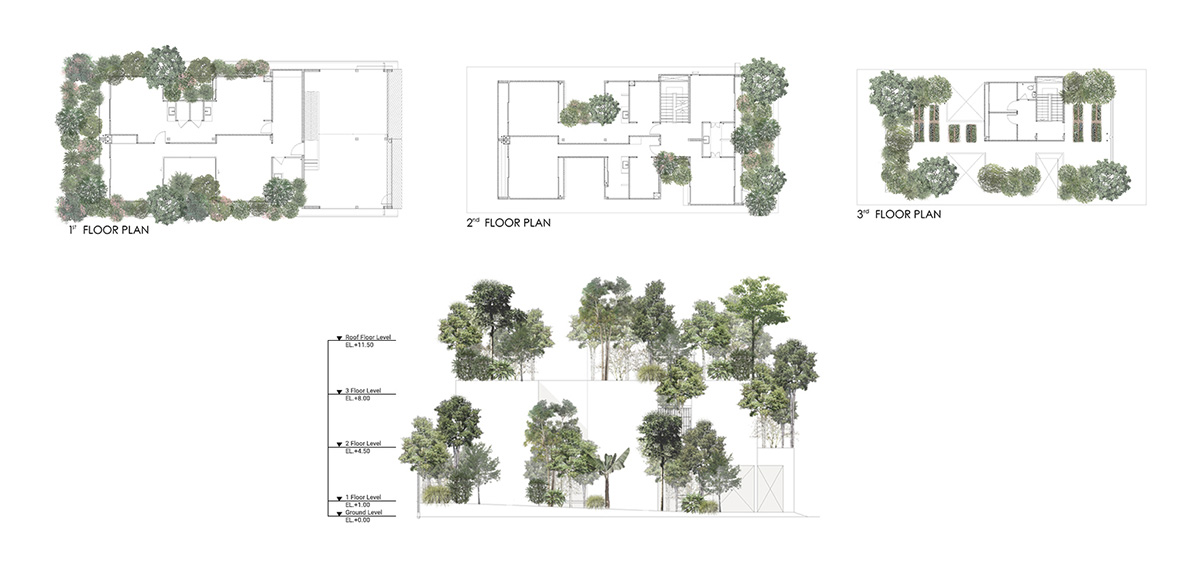
Floor plans
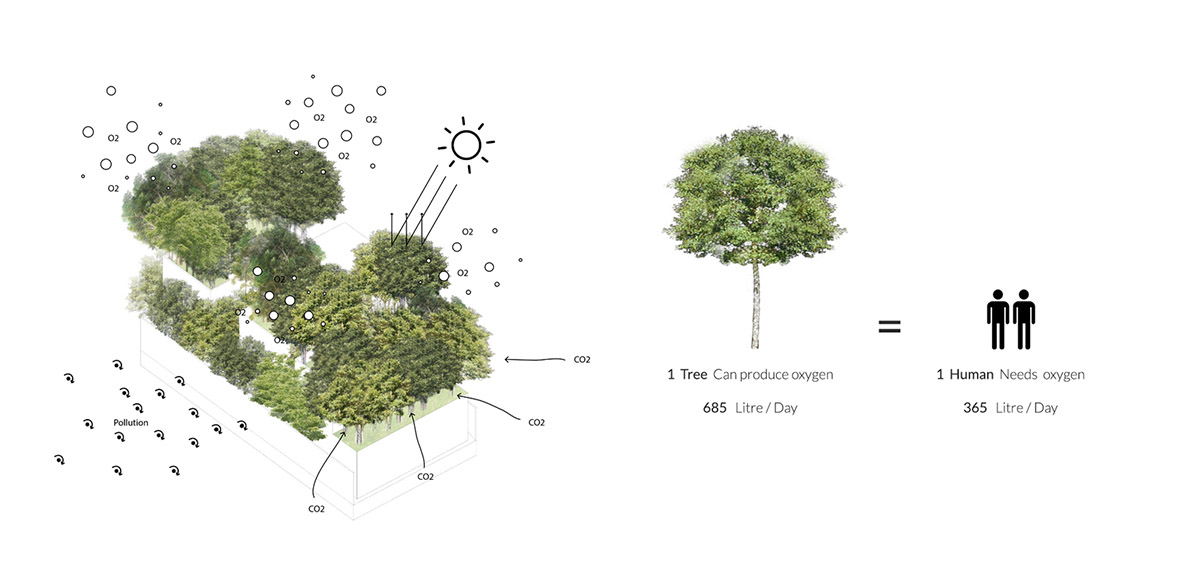
Diagram
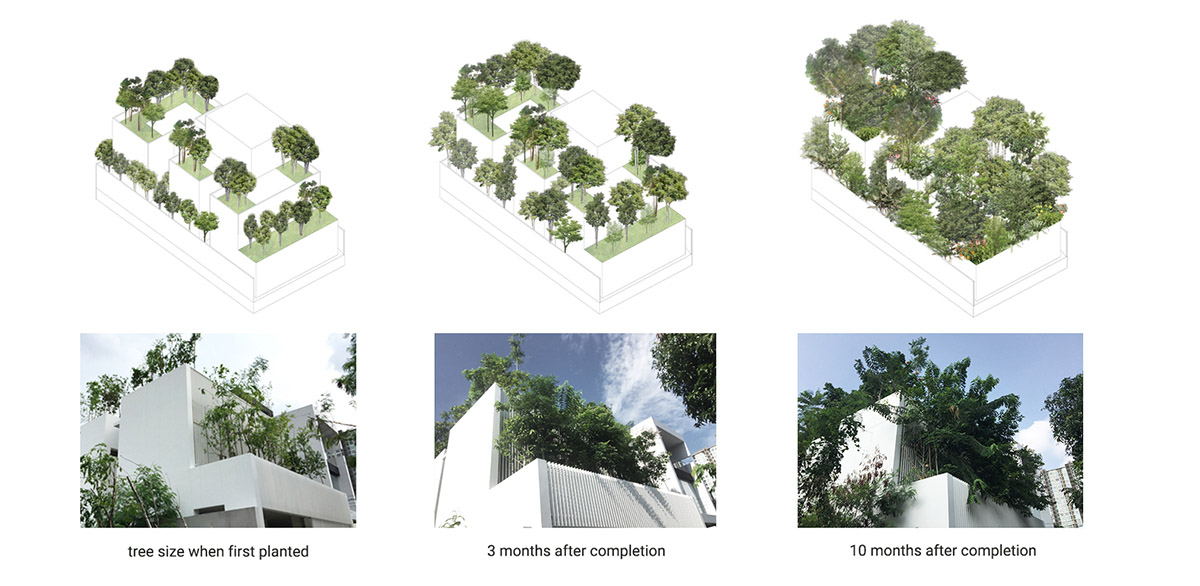
Diagram
Project facts
Category: Residential
Location: Bangkok, Thailand
Design Period: 2015-2016
Completion Year: 2017
Site Area: 50 sq. m.
Awards: LILA Awards 2017
Top image © Napon Jaturapuchapornpong
All images © Jinnawat Borihankijanan, Prapan Napawongdee, Napon Jaturapuchapornpong
All drawings © Shma Company Limited
> via Shma Company Limited
